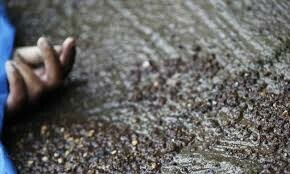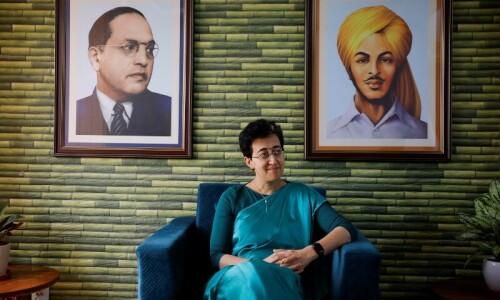MUSLIM countries are turning into fast-growing markets for chocolate, and one Asian country is betting more people around the world are going to want candy and goodies that comply with the religion’s strict food laws.
Malaysia doesn’t grow much cocoa, but it has become the continent’s No. 2 processor by grinding beans imported from neighbouring Indonesia, the largest producer outside of Africa and home to the world’s biggest Muslim population. With a majority of its own people classified as Muslim, Malaysia already sells mostly cocoa products in compliance with halal principles -- which forbid the use of alcohol and some animal products.
Islam is the world’s fastest-growing religion and may have 2.8 billion faithful by 2050, according to the Pew Research Centre. Global sales of halal-certified chocolate confectionery will reach $1.7bn by 2020, growing at a five per cent annual rate that exceeds the 4pc gains expected for all chocolates, according to Euromonitor International Ltd. Malaysia is hoping the growth will help to boost exports that were a record last year.
“Halal certification is regarded as essential in emerging, Muslim-majority markets like Indonesia and Malaysia,” said Emil Fazira, senior research analyst at Euromonitor in Singapore. “In markets where Muslims have increasing purchasing power, halal-certified products are expected to be preferred over uncertified products.”
Based on the teachings in the Koran, the certification doesn’t apply just to food ingredients. Processing machines also must avoid alcohol used in cleaning products as well as many animal-based lubricants, including emulsifiers or gelatins extracted from hogs.
Dazzle Food Sdn, which sells specialty couverture and consumer chocolates such as the Mr Coco and Marie Coco brands, became fully halal in 2009. In addition to the domestic market, it exports to Singapore, Indonesia, China and the Middle East. The Selangor-based company, in an email response to questions, said the certification helped boost sales by 20pc to 30pc over the past three years. Demand may grow even faster this year, it said.
Muslim-dominated countries in central Asia and the Middle East provide some of the biggest opportunities for increased exports as their economies expand, according to the Malaysian Cocoa Board. In many, halal-labelled products aren’t niche markets but mainstream staples.
“For countries in central Asia, their confectionery industries are developing and growing,” Norhaini Udin, Director-General of the Malaysian Cocoa Board, said in an interview at the board’s Nilai office on the outskirts Kuala Lumpur. “The Muslim community is more cautious now. If you don’t carry the halal logo, you can’t capture their market.”
Malaysia doesn’t sell only chocolate. A large part of its exports are cocoa products, fillings and coatings made on halal-compliant equipment, Norhaini said. Last year, overseas shipments of cocoa beans and products were valued at a record $1.3bn.
The word halal means “permissible” and is part of a system of morals known as Shariah. In countries with Muslim minorities, the halal certification has sparked calls for boycotts of products with the halal label.
Nestle SA stopped halal-certification of retail chocolate products sold in Australia as of March 2016. Other chocolate brands may comply with Islamic principles but aren’t labelled halal. Mondelez International Inc, which owns brands including Cadbury, produces halal chocolate and confectionery “where there is demand for halal”, it said in an email.
That’s not an issue in Malaysia, where all the foods that Nestle sells there, including Kit Kat, are halal-certified. Malaysia has 51 chocolate manufacturers and confectioneries and 194 local chocolate producers, selling about 1.095bn ringgit a year, according to cocoa board data.
The country is focusing on four regions to boost sales, Norhaini said. The country already has more than 50pc market share in cocoa powder and butter in Southeast Asia, and 30pc in the rest of Asia, New Zealand and Australia. In the Middle East it holds a 20pc market share for cocoa butter and powder imports and in Eastern Europe it has a 15pc to 17pc share of chocolate ingredients. Top customers in that region are Russia, Ukraine and Kazakhstan.
“By 2020, we should be able to capture 20pc from the current position for overall Eastern Europe,” Norhaini said.
Euromonitor estimates Asia Pacific will continue to be the strongest market for cocoa ingredients, with compound annual growth of 4.5pc over 2015-2020 compared with 1.7pc globally. It’s already the second-largest region by volume, ahead of North America.
Importantly for chocolate lovers, Dazzle said, the halal certification doesn’t affect taste.
“The thing about chocolate is there’s a whole amount of science involved,” company spokeswoman Awatif said. “The tempering, refining, conching, the things you put inside. I wouldn’t say there’s a specific difference in taste, it depends a lot more on the processes rather than whether it’s halal or not. It’s the process that matters more.”
Bloomberg-The Washington Post Service
Published in Dawn, June 18th, 2017













































Dear visitor, the comments section is undergoing an overhaul and will return soon.